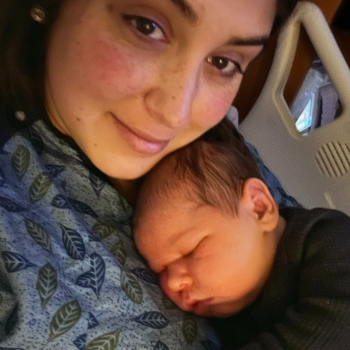
About The Preeclampsia Registry
Last Updated on October 14, 2024
Launched in 2013, the Preeclampsia Registry was built to create a partnership between preeclampsia survivors and researchers to advance our understanding of preeclampsia. As participants share their experiences, approved researchers are provided with access to “de-identified” health information – information that does not contain participant names or contact information. This helps researchers to find patterns that can lead to findings and further studies. The registry also accelerates studies as researchers are able to gather cohorts for new studies or pose new questions.
The Preeclampsia Registry also gives its participants the option of learning about other research studies for which they may qualify and provides them with the means of connecting with researchers.
Most importantly, patient registries unite the patient voice with research. Patients have questions, theories, and interests that are often different from investigators conducting formal research. By engaging patients in the research process, as we can through patient registries, the chances for discovery and improvement are an even greater possibility.
Have questions? Contact Research Manager VeeAnn Argyle at registry@preeclampsia.org.
Preeclampsia Registry Advisory Council
The Preeclampsia Registry Advisory Council (PRAC) played a key role in the development of the Preeclampsia Registry and continues to be essential to its integrity. The PRAC provides representation amongst many disciplines including epidemiology, internal medicine, pediatrics, nephrology, genomics, obstetrics and gynecology (including Maternal Fetal Medicine), industry, National Institutes of Health, Centers for Disease Control, patient/consumer, and the Preeclampsia Foundation Medical Medical Advisory Board.
View the Preeclampsia Registry Advisory Council
Studies featuring Preeclampsia Registry data
The beauty of the Preeclampsia Registry is that its deidentified data can be used in multiple studies across the US and even the globe! Below are a few select publications to which the Preeclampsia Registry data contributed.
For more details about our research funding, please visit https://preeclampsia.org/research-funding.
|
Study | Aim(s) |
Publication or Presentation |
Lead Investigator |
|
The patient journey during and after a preeclampsia-complicated pregnancy: a cross-sectional patient registry study Aim 1: Ascertain and describe the Patient Journey in the setting of PE from the patient’s point of view. Aim 2: Understand the interactions between patients and care providers and the decision-making process. |
BMJ Open (2022) Thesis (2024)
|
R.C. Rianne Bijl. MD M.P.H. Wendy Koster, MD, PhD Erasmus University |
|
Information needs and experiences from pregnancies complicated by hypertensive disorders: a qualitative analysis of narrative responses Aim 1: To identify and examine the information needs of women with hypertensive disorders of pregnancy |
BMC Pregnancy & Childbirth (2021)
|
Swati Shree, MD University of Washington |
|
Women’s attitudes, beliefs and values about tests, and management for hypertensive disorders of pregnancy Aim 1: Understand the patient perspective of PE tests and treatments. |
BMC Pregnancy & Childbirth (2021)
|
Shenaz Ahmed, PhD University of Leeds |
|
Cardiomyopathy and Preeclampsia: Shared Genetics? Aim 1: Determine whether cardiomyopathy gene mutations are also a contributory factor in preeclampsia |
Circulation (2018)
|
Hilary Gammill, MD University of Washington |
|
HMOX1 Genetic Polymorphisms Display Ancestral Diversity and May be Linked to Hypertensive Disorders in Pregnancy |
Reproductive Sciences for Springer (2022)
|
Tianyanxin Sun, PhD Stanford University |
|
Patient-Reported Pre-conceptional Characteristics in the Prediction of Recurrent Preeclampsia Aim 1: Determine if periconceptional cardiovascular risk factors in women are correlated with risk of recurrence of PE. Aim 2: Compare cardiovascular adaptation in women with and without a history of PE. |
Pregnancy Hypertension: An International Journal of Women’s Cardiovascular Health (2022) |
M.P.H Wendy Koster, MD, PhD R.C. Rianne Bijl. MD Erasmus University |
|
Cell-type specific differences between preeclampsia and normal placentas using unbiased single-cell RNA-sequencing Aim 1: Gene expression of the placenta across the PE spectrum, at single-cell resolution Aim 2: An open web resource of the molecular human placenta in health and disease |
Elsevier (2023) |
Amit Zeisel, PhD Assistant Professor, Ido Solt, MD Clinical Assistant Professor |
|
Sisterhood Study: Recruiting and retaining nulliparous individuals with a family history of hypertensive disorders of pregnancy to participate in scientific research prior to pregnancy Aim 1: Evaluate the feasibility of conducting a large preconception cohort study to prospectively evaluate the impact of PE on CV health. Aim 2: Collect preconception BP data as a measure of engagement |
Science Direct (2023) |
Sadiya Khan, MD MS Northwestern University |
|
Impact of tissue porosity and asymmetry on the oxygen uptake of the human placenta: A numerical study |
-Placenta (2022) |
Romina Plitman Mayo |
|
Early Assessment of Pregnancy Complications: Placental Characterization based on Ultrasound Images and Numerical Biomechanical Models Aim 1: To correlate placental transport capacity from in-silico models with in-vivo data Aim 2: To correlate placental density with in-vivo ultrasound echotexture Aim 3: To estimate the risk of developing PE using routine 2nd trimester scans |
Presented findings, May 2023 to Global Pregnancy CoLab (webinar) Published manuscript in Placenta 2022 |
Dr. Romina Plitman-Mayo, Department of Immunology and Regenerative Biology, Weizmann Institute of Science |
|
High-Throughput Methylome Analysis of Early and Late Onset Preeclampsia Aim 1: Quantify and compare DNA methylation signatures associated with early and late onset PE in mothers and infant pairs. |
Kent Thornburg, PhD Oregon Health Sciences University |

My perfect daughter, Katie, gave birth to her first child just eight days before she passed away due to postpartum complications. Her deliver...
ReadMoreResearchers, please contact our Research Manager if you would like the Preeclampsia Foundation to help you recruit participants for a research study or focus group, or have any questions about the Preeclampsia Registry.
Related Articles

Your story is needed to improve outcomes for moms like you. Add your voice to critical preeclampsia research to ensure that every story is heard.

Frequently asked questions about the Preeclampsia Registry, a patient-driven registry and biobank.

The Preeclampsia Foundation offers research funding, study recruitment, and other patient engagement services to researchers.

We provide research grant funding to advance progress towards detection, prevention, or treatment of preeclampsia, HELLP syndrome, and other hypertensive disorders of pregnancy.

April 8, 2025 - San Francisco, Calif. - Mirvie announced today the results from a breakthrough study published today in Nature Communications that reveal new advances in the biological understanding o...

For more on the Preeclampsia Foundation's work to amplify all research related to biomarkers for improved prediction and diagnostic tools, please visit https://preeclampsia.org/biomarkers. INDIANAPOL...

By Amanda Yang, MS Evidence-based healthcare comes from trustworthy research. Research is designed carefully, so that it can be repeated and tested by other scientists. Wrong information or bad data...

By Sig-Linda Jacobsen, MD Neurological symptoms are not uncommon in those who have preeclampsia. The most common symptom is severe headache. Some patients may also experience eclampsia, or seizu...

Summary by Jennifer Mitchell, MPH, PhD Preeclampsia is a serious condition that can happen during pregnancy and affects 2-8% of pregnancies around the world. It can cause health problems for both the...



